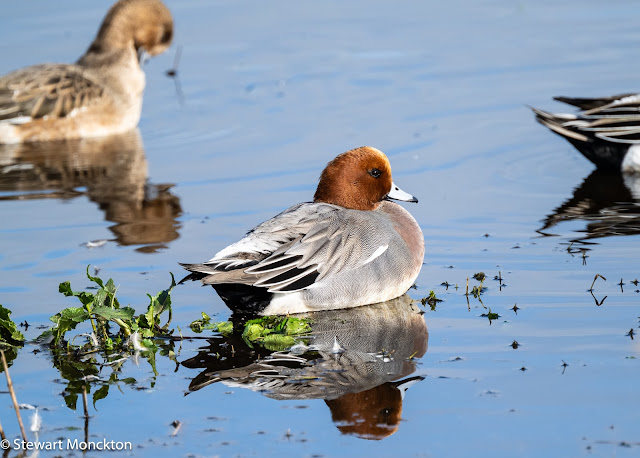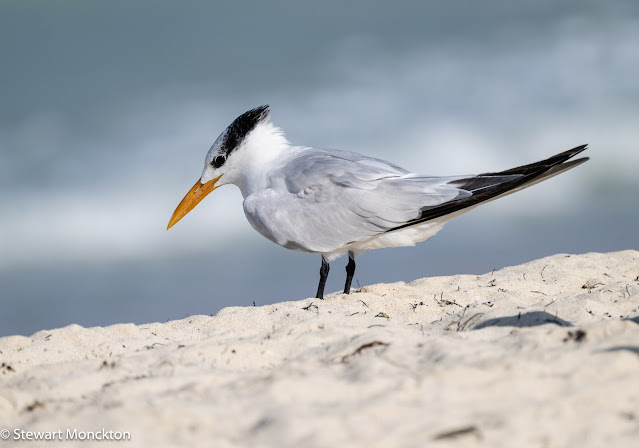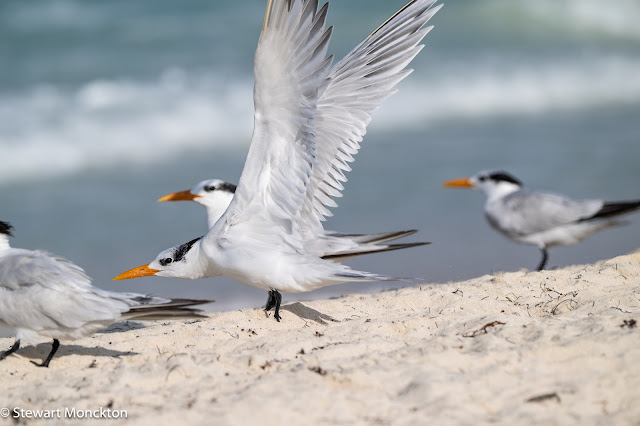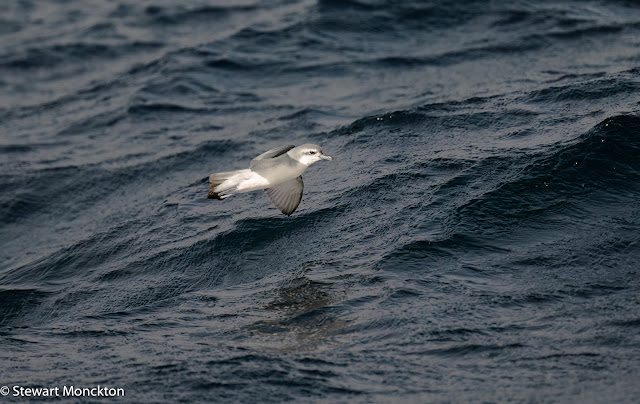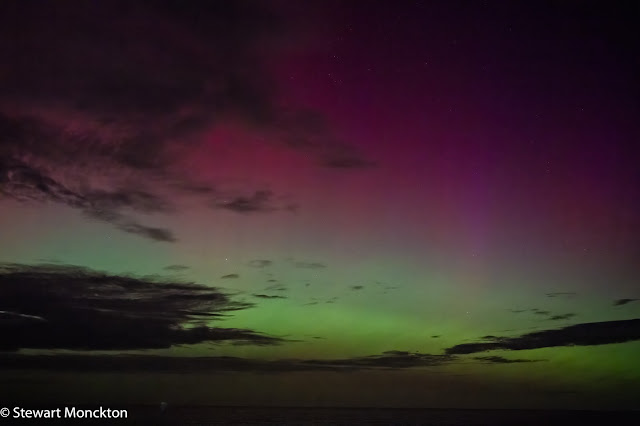Pages
Friday, 31 May 2024
Amsterdam
Wednesday, 29 May 2024
Wild Bird Wednesday 618 - Wigeon
The Wigeon (Anas penelope) is one of my favourite ducks (and I think we all have a favourite duck!).
These pictures were taken in the UK in February this year. In the UK the Wigeon is a common winter visitor, and a much rarer breeding species.
Not only are Wigeon good to look at, their distinctive call is also great. It reminds me of some form of kids toy!
You can see the green speculum on the birds in the second set of pictures, and the distinctive white panel in front of that.
It's been a crazy week! Hope to visit blogs tomorrow!
As ever, to join in with WBW, click on the big blue button below. SM
You are invited to the Inlinkz link party!
Click here to enterFriday, 24 May 2024
Dawn at Queenscliff
A while ago I went out on an early morning birding trip from Queenscliff. Queenscliff is a small coastal town about and hour and a half from home.
These are some of the pictures I took before we left the harbour!
Wednesday, 22 May 2024
Wild Bird Wednesday 617 - Royal Tern
Back to Cuba for WBW this week.
These are Royal Terns (Thalasseus maximus) is the second largest of all the terns found in the world. Only the Caspian Tern (Hydroprogne caspia) is larger. The Royal Tern is about 50 cm from bill tip to tail tip. They are an impressive bird!
These birds were loafing about on the beach at Cayo Coco on the northern shore of Cuba. These are a series of islands that can be reached by driving over a long causeway road from the mainland. There are a number of 'all inclusive resorts' in the islands - and without question the birding was better than the resorts! Oh well.
The Royal Tern breeds on the Atlantic and Pacific coasts, and after breeding disperses as far as West Africa.
As ever, to join in with WBW click on the link below. SM
You are invited to the Inlinkz link party!
Click here to enterWednesday, 15 May 2024
Wild Bird Wednesday 616 - Fairy Prion
Not all of the birds that you see while on a pelagic trip are large and robust.
The Fairy Prion (Pachyptila turtur) is reasonably small, being a little smaller than a thrush and weighing about 140 grams (just under 5 ounces).
And yet it is at home on the breaking waves of the ocean, out past the continental shelf, rubbing shoulders with albatross, shearwaters, and petrels of all forms.
Identification of Prions is a bit of an art form - and I was grateful to have expert advice on hand for these birds!
As ever, to join in with WBW click on the link below. SM
You are invited to the Inlinkz link party!
Click here to enterSunday, 12 May 2024
Green Sky at Night
Like many other people, I became an aurora chaser this weekend. For me, the target was the Aurora Australis - the Southern Lights. The Southern Lights are the less well publicised brother of the Northern Lights!
I had never managed to really see either of the Lights before, so we all took off to Point Lonsdale (about and hour and a half from home) to see what we could see.
Now in this cases it's reasonable to say that the camera sees what eye only glimpses - but even with the naked eye you could see colours in the sky.
After a great deal of messing around I was able to start getting images in camera. I have also tried not to manipulate these images too much - although I have run them through de-noising software to get rid of the inevitable noise.
I may have to go back out again tonight! SM














